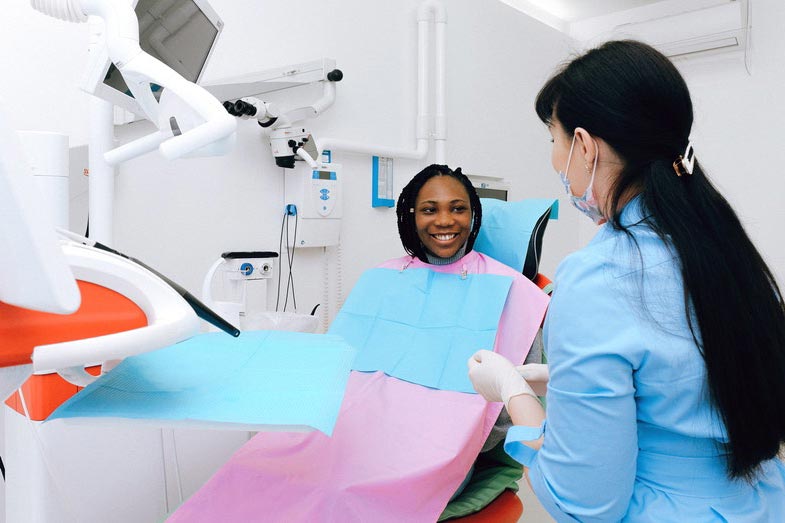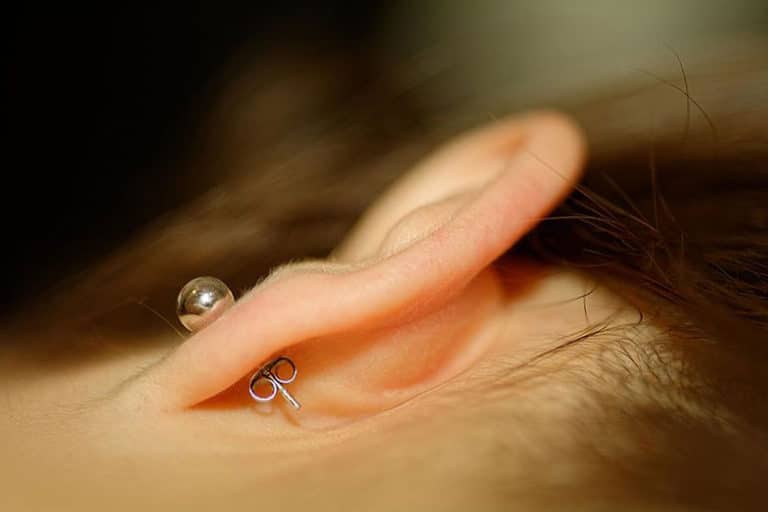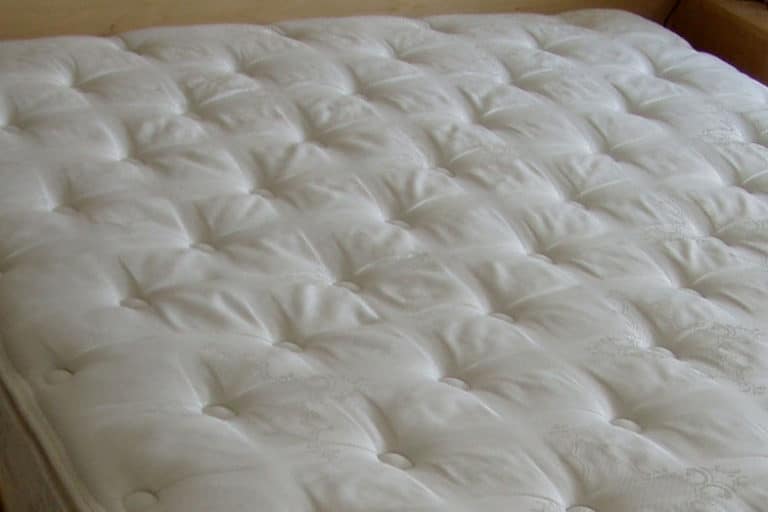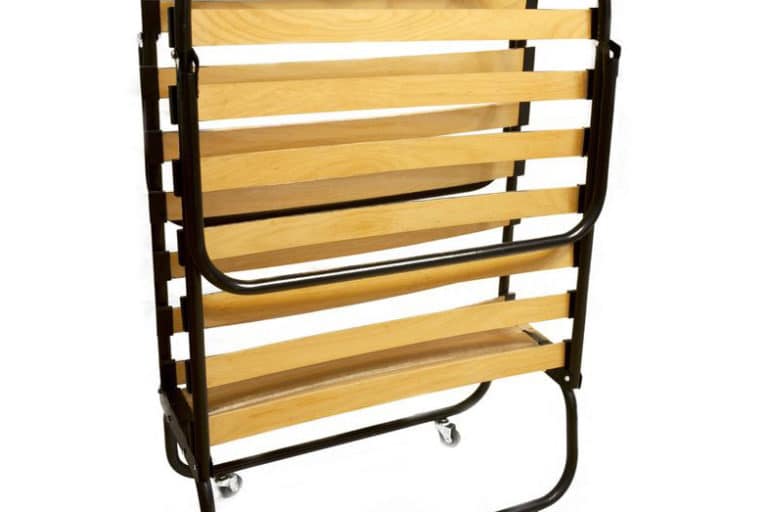Can I Sleep on My Side After Wisdom Teeth Removal?
Disclosure: We may get commissions for purchases made through links in this post.
Wisdom teeth removal is a simple procedure, but it can be a painful one, and you will need some time to recover. A good night of rest will go a long way towards healing, but finding the right position may prove to be a challenge, especially if you’re used to sleeping a certain way.
Can I sleep on my side after wisdom teeth removal? You must sleep on your back for about three to seven days, or however long it takes you to recover. Sleeping on your side places pressure on your cheek, which can lead to further pain, bleeding, and swelling. For this reason, avoid sleeping on your side after wisdom teeth removal.
If you had a similar procedure before, then you know how frustrating it can be to find a comfortable position to lay in, especially if you’re a regular side sleeper. There are, however, some tips you can try to help get you through the night comfortably.
Remember that the pain won’t last forever and that you’re helping yourself out in the long run. So stay positive and get through this!

How Should I Sleep After Wisdom Teeth Removal?
If you’re a side sleeper, this can be a challenge, since that’s the one position you should avoid.
- Sleep on your back – Use pillows to help keep you from tossing and turning. Tuck your blankets in and around you to securely form a cocoon. A cocoon will help prevent you from rolling on to your side.
- Sleep on your opposite side – Lay on the unaffected side. Doing this may still cause some discomfort, though, so be sure to try it slowly.
- Take painkillers as directed – Painkillers can help ease the pain and get you through the night. Take only the necessary amount and never overdo it.
- Make sure someone is around – Although not required, it may be helpful to have someone close by such as a parent, friend, or loved one, in the event something goes wrong, or you need something. It is comforting to know someone familiar is close, which may help speed up recovery. They’re also great for bringing you some ice cream and other soft treats.
- Meditate – Listen to gentle music or the sound of your breathing. Focus your thoughts on positive things rather than any discomfort you may be experiencing. Realize that recovery will be quick, even though it may not seem so during the time.
When Can I Sleep on My Side After Wisdom Teeth Removal?
After a week, you can return to your normal sleeping position, whatever that may be. If the site is still tender after a week, you may want to use a special pillow (view on Amazon), so you can sleep on your side but still elevate and keep the extraction site stable.
Dos and Don’ts Following Wisdom Tooth Extraction

Dos
- Elevate your head – This helps drain fluid away from the tooth extraction site. A memory foam pillow (view on Amazon) specially designed for post-surgery can help.
- Have an ice pack on hand – This helps to reduce swelling in the area and also helps numb the pain.
- Get enough rest and sleep – Any surgical procedure can put undue stress on your body, so give it time to heal and be patient.
- Eat the right foods – When you’re ready to eat, avoid junk foods that will slow the recovery process. Have lots of nutritious foods, including fruits and vegetables. Smoothies are an excellent choice since they are soft and contain lots of healthy ingredients.
Don’ts
- Do not sleep on a couch – You will not be able to control the movements of your head, and you may slip into a position that will put stress on the extraction site. For elevating yourself, use a comfortable bed wedge (view on Amazon). This also applies to sleeping on your side after wisdom teeth removal.
- Do not use satin sheets and pillowcases – If you use satin, change your sheets temporarily to cotton instead as the material is more secure for sleeping. Satin or silk can be slippery and cause your head to move around unexpectedly. Pillows on both sides of your head may also keep you from slipping to the sides.
- Avoid spitting – This creates pressure and may cause further bleeding. Instead, tilt your head over a bowl or the sink. Allow gravity to take over and let the blood run out. You can also place a bowl next to your bed for easy access throughout the night.
- Do not smoke or drink alcohol – Smoking can cause bleeding and hinder recovery. Furthermore, a combination of alcohol and painkillers can also be harmful.
- Do not exercise or carry heavy objects – Your nerves are affected by tooth extraction, and doing this may cause bleeding or swelling. Just rest in bed, and during the day, watch some television or play video games.
- Do not poke the extraction site – It may be tempting, especially if you can feel an itch, but touching the area may lead to infection. Allow it to heal on its own without any interference.
- Do not use a straw – The sucking motion can cause bleeding or dry socket, which is when the blood clot becomes dislodged and exposes the nerve and bone to air.
How Do You Prepare for Wisdom Teeth Removal?

We’ve look at sleeping on your side after wisdom teeth removal; now we’ll discuss how to prepare best for the procedure.
1. Gather as Much Information as You Can
- Use the internet – Use Google to research and find information related to the topic. Forum websites such as Reddit and Quora have people who share their experiences. This may be good to get an idea of the procedure, but be cautious when following advice online.
- Ask a dentist – Seek out a dentist who has experience in the procedure, especially complicated ones.
- Ask your friends or relatives – Ask your friends, relatives, and colleagues about their own experiences. Their knowledge can go a long way to helping you feel more prepared and comfortable.
- Visit the clinic – Ask lots of questions at the local clinic. Don’t be shy as any information can be beneficial. You should know precisely how the procedure will go. Find out about what may go wrong and what to do about it. Even simple questions related to brushing teeth, showering, and eating food can help. There are no embarrassing questions when it concerns your health. You can even ask your doctor about sleeping on your side after wisdom teeth removal.
2. Have Someone Go With You
Wisdom teeth extraction is normally an outpatient procedure where you can go home after. However, if you are in pain or feeling groggy from anesthesia, you should avoid driving or go back on your own. Pain killers and anesthesia impair judgment and behavior.
A friend or family member will be the best candidate to accompany you. They can also help you to fill a prescription if you need it and make sure that you are comfortable when you get home. Put their number on speed dial just in case you need to contact them immediately. Let them know you will need help lying down. They should know that you need to be positioned on your back. Have them prop you up with an elevated pillow and make sure you are secure.
Some dentists may not perform the procedure unless someone is with you anyway, but just in case, someone with you is good to have.
3. Stock up on the Proper Foods and Drinks
You wouldn’t normally have many soft foods and liquids in stock, so before the procedure, head to the grocer and buy stock up. Check with your dentist which ones you’re allowed to eat and when. Soups, juices, smoothies, oatmeal, yogurt, soft boiled eggs, certain fruits, and other soft foods are good foods to have. Bear in mind that some small ingredients may end up going to the extraction site and cause problems later on.
Confirm if you need to stick with cold food or if you’re allowed to warm it up a bit. Ice cream is always a good bet, and this is your chance to indulge without feeling guilty.
4. Discuss Medications With Your Dentist
If you have allergies to certain drugs, be sure to let your dentist know beforehand as it may interact with anesthesia or other medicines that will prescribe to you. You want to avoid any adverse reactions as it may lead to other unwanted complications or even health risks that you don’t want to take. Ask which ones will be used on you and what you will be taking afterward so you can discuss if it works against any existing medications, you may have. Be honest with your dentist, and do not omit any drugs you may be taking. It can mean saving your life should complications occur. A cold compress bag will also be handy.
Medications can also help get you through the night. Painkillers, for instance, should be discussed thoughtfully with your dentist.
5. Check Your Dental Insurance
Things can always go wrong, even with the most careful planning. Being prepared for any eventuality is the key to avoiding future problems. A complication during the wisdom tooth removal process can lead to a financial burden, so you want to have good dental insurance coverage. It is always better to have it and not need it.
6. Organize Your Bed

Rest and sleep are two of the most critical aspects of recovery, but they will be challenging to achieve if your bed is uncomfortable. When you’re in pain, this is a crucial thing to prepare for. Make sure that your bed is relaxing, and that you have the right pillows to support your neck and head. How to sleep after wisdom teeth extraction is a process you need to learn and one that can make your recovery process faster and relatively pain-free.
If you’ve already had the procedure and you’re reading this, here are a few tips you can try when sleeping on your side. Make your bed as relaxing as possible by gathering a few pillows and blankets from around the house. And by few, I mean enough to create a cocoon-like structure you can securely lay in without rolling around.
After a week or once you have recovered, you can return to your regular sleeping position, such as sleeping on your side. You may actually prefer this new one. For side sleepers, something you may find comfortable to sleep with is an orthopedic knee pillow (view on Amazon). It provides excellent support and prevents you from tossing and turning, trying to find a relaxing position to sleep in.
How Do You Deal With the Pain?
Once the anesthesia wears off, you will most likely feel the effects, and if your pain tolerance is low, it will be a good idea to check with your dentist if you can take the painkillers just before the pain begins.
- Make sure you have alternatives to the medications prescribed to you in case the one you took is not strong enough or has unexpected results.
- Check if you need to change the gauze pad or remove it altogether. Do not touch the area with your fingers as it may cause infection. Also, do not sleep with the gauze in your mouth as you may swallow it inadvertently.
- Although a little bleeding or swelling is expected, it should not be excessive. If it is, do not hesitate to go to the hospital to get it checked.
Should Asymptomatic Wisdom Teeth Be Removed?
There are different reasons why your dentist will recommend the removal of your third and last molars, even if it is not causing pain. It could be impacted, growing at a wrong angle or even damage the tooth beside it. The reason could be as simple as avoiding future problems. If your wisdom tooth does not erupt, it may cause damage to your bone and gum tissue.
Conclusion – Can I Sleep on My Side After Wisdom Teeth Removal?
You may be one of the lucky few who do not need to have this procedure done, but if you’re not, then these recommendations should help towards having a healthy, pain-free life after wisdom tooth extraction. The query is not just about sleeping on your side after wisdom tooth removal but also making sure the whole process goes smoothly.






